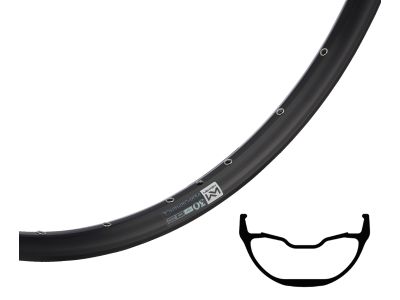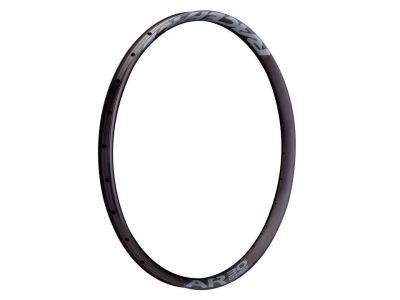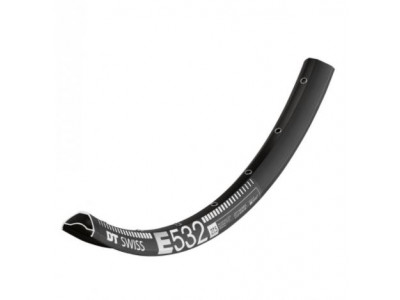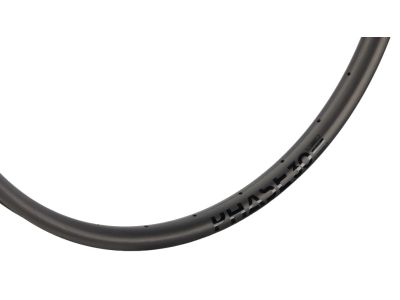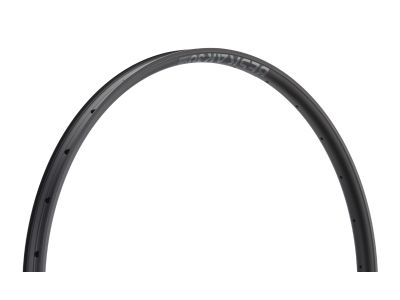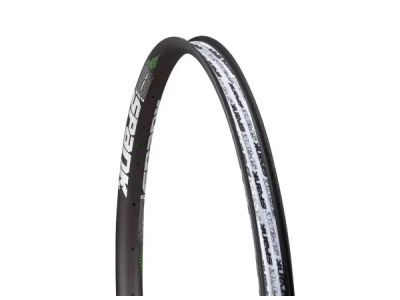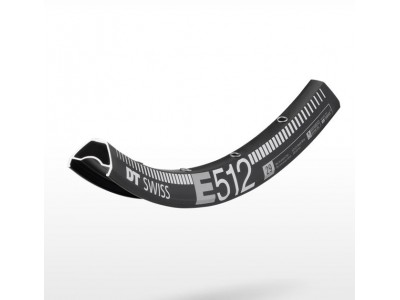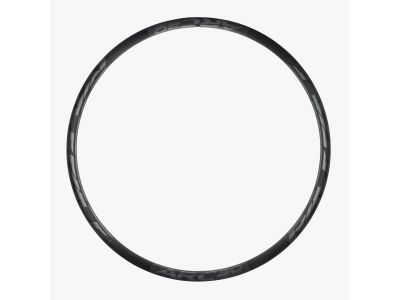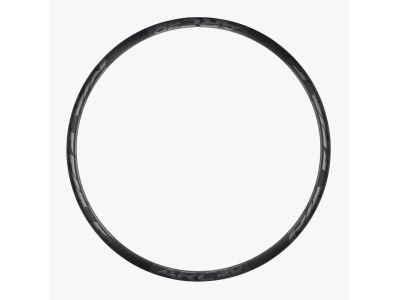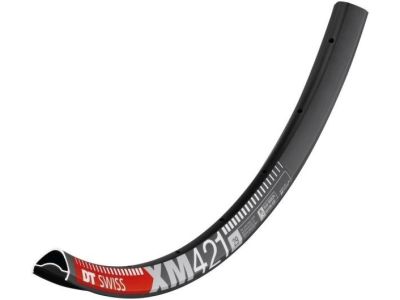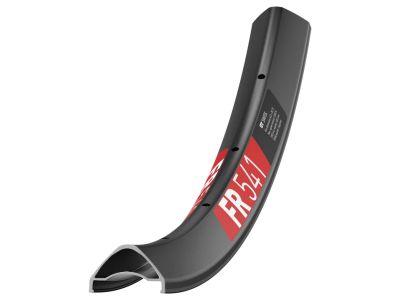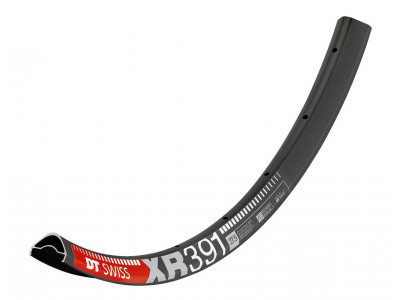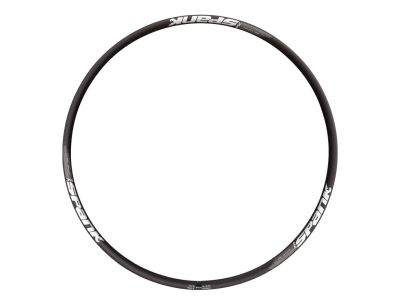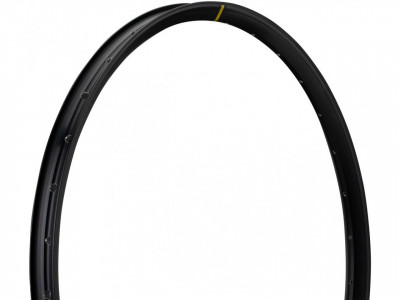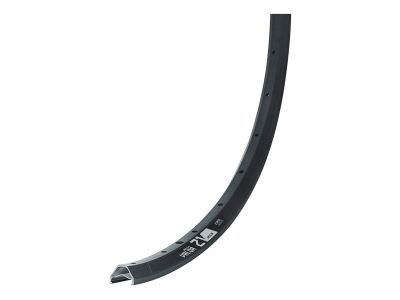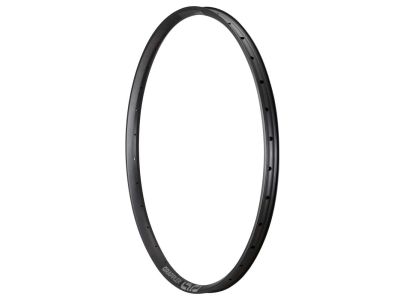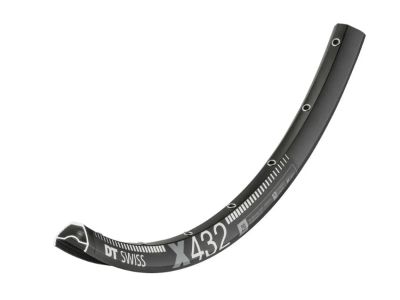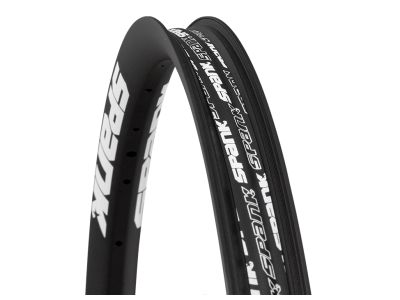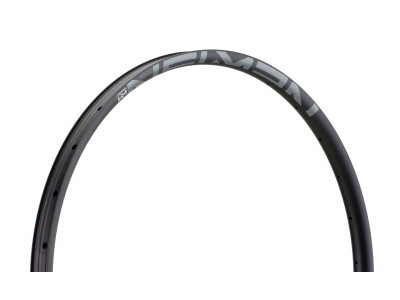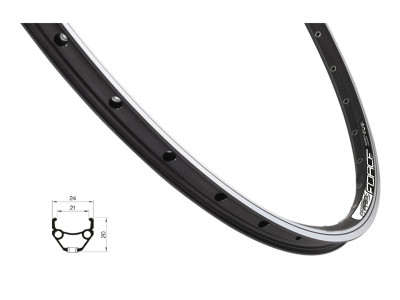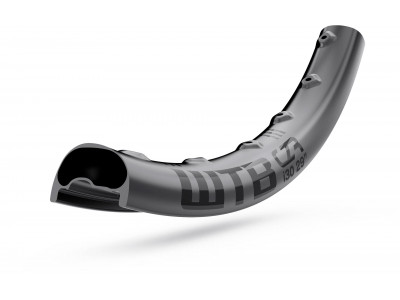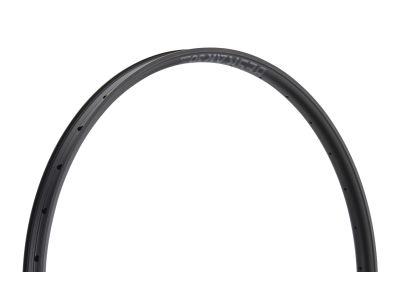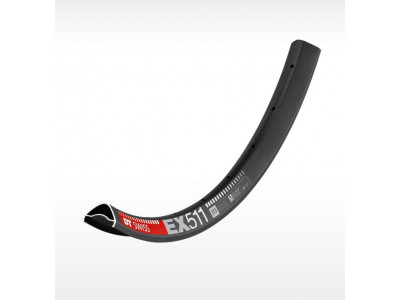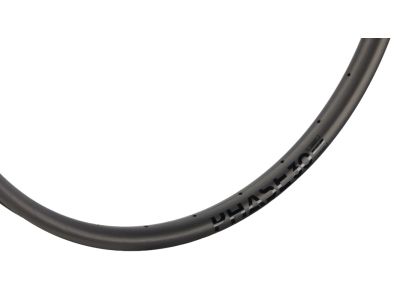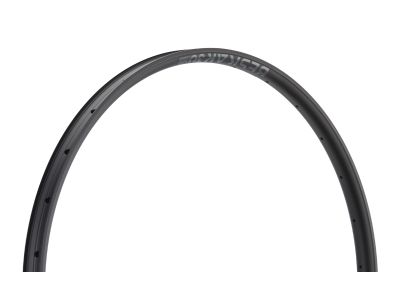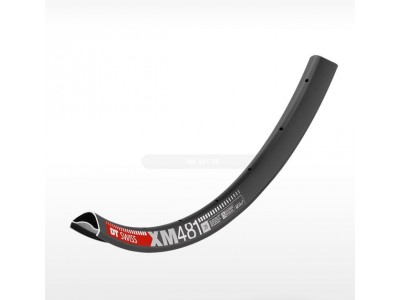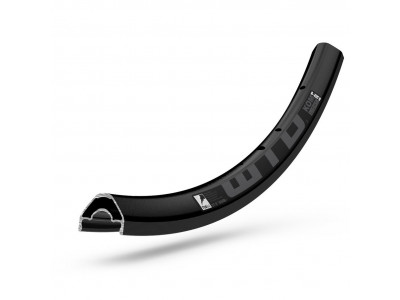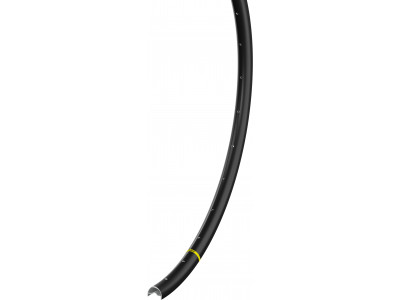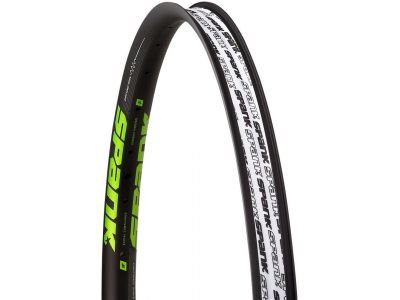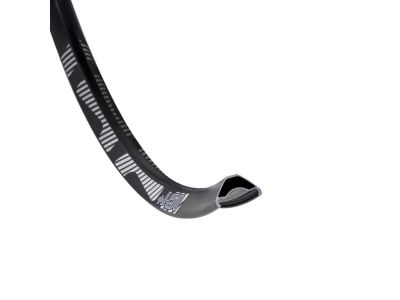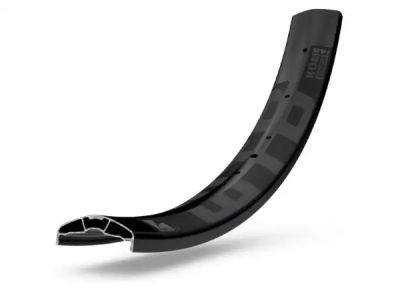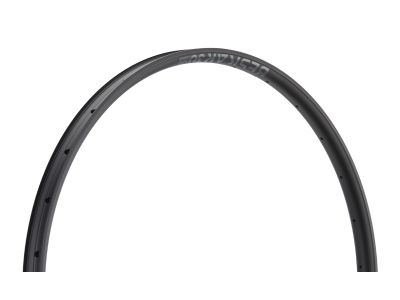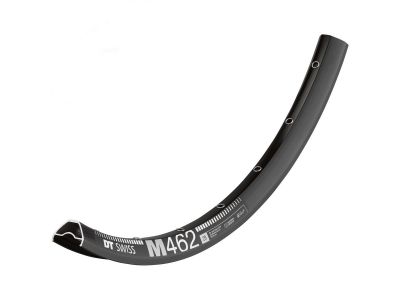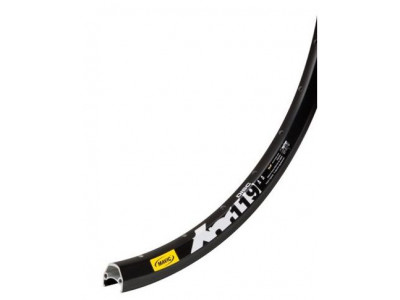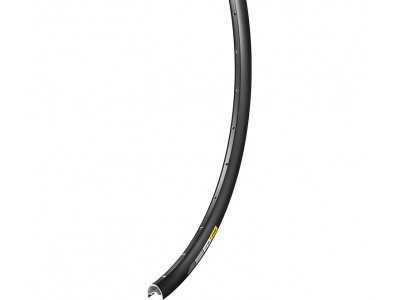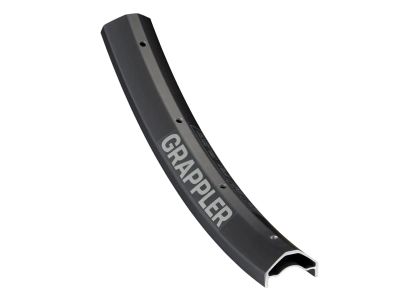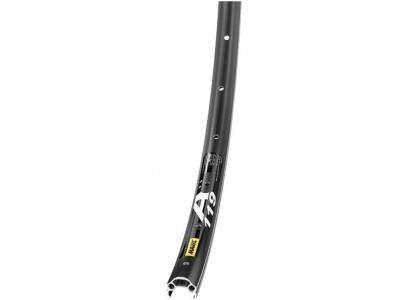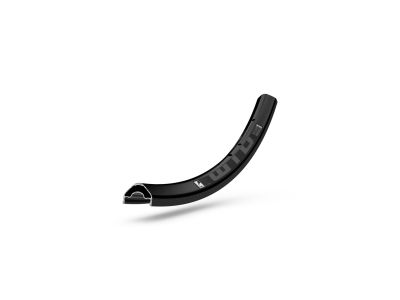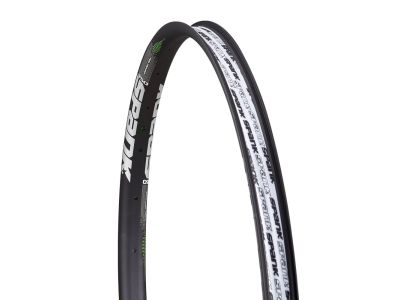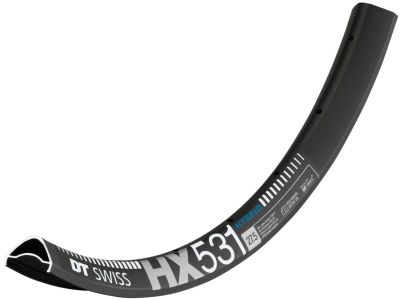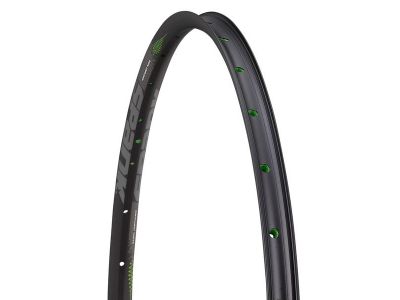We have noted your interest.
29" MTB rims
29-inch rims have gained immense popularity in the world of mountain biking due to their exceptional characteristics. This size offers significant advantages, especially in the field of cross-country and trail cycling.
Due to their larger circumference, 29" rims have a better ability to overcome obstacles like rocks and roots, resulting in a smoother and faster ride. The larger contact surface created by 29" rims results in exceptional traction. This is especially valuable when climbing steep slopes, as the rims grip the road more effectively, reducing the likelihood of wheel slippage.
A larger wheel size equals a more stable and comfortable ride. Riders have a greater sense of control and confidence when tackling technical descents and challenging terrain.
For which type of cycling are 29" wheels not suitable?
For downhill (DH) or aggressive mountain bikes, some riders prefer smaller wheel sizes, such as 27.5" or even 26". These smaller wheels can offer better handling, responsiveness, and a lower centre of gravity, which can be beneficial when tackling steep descents, tight turns, and jumps.
Despite this, many riders successfully use 29" rims for various types of mountain biking, including downhill. Advances in frame design and suspension technology have helped eliminate any potential drawbacks, and some riders appreciate the stability and increased traction that 29" wheels provide even on more aggressive downhill rides.
The suitability of 29” rims for different types of mountain biking ultimately depends on the rider's individual preferences, terrain, and riding style.
What are the advantages of using carbon fibre rims compared to aluminium rims for mountain biking?
Using carbon fibre rims over aluminium rims for mountain biking offers several advantages:
- Weight savings: Carbon fibre rims are generally lighter than aluminium rims. This weight reduction can improve the acceleration, handling, and overall performance of the bike. Lighter rims can also help reduce rotational weight, making it easier to climb hills and accelerate.
- Stiffness and responsiveness: Carbon fibre has a higher stiffness-to-weight ratio than aluminium. This increased stiffness can improve energy transfer, making your pedalling effort more efficient. The improved responsiveness of carbon fibre rims can result in a more precise and direct feel when cornering or navigating technical terrain.
- Damping properties: Carbon fibres have natural damping properties that can help absorb vibrations and shocks from rough roads. The result can be a smoother, more comfortable ride.
It is worth noting that carbon fibre rims are typically more expensive than aluminium rims. Additionally, carbon fibre rims may require more maintenance and inspection to stay in optimal condition. Consider your riding style, terrain, and budget before investing in carbon fibre rims.
How heavy are 29" rims compared to other rim sizes?
The weight of 29" rims can vary depending on the specific model, material, and construction. However, in general, 29" rims tend to be slightly heavier than smaller rim sizes, such as 27.5" or 26". The larger diameter of 29" rims requires more material to make the rim, which can contribute to a slightly higher weight compared to smaller rim sizes. Additionally, 29" rims often have wider profiles to accommodate wider tires, which can also increase their weight.
It is important to note that the difference in weight between rim sizes is often relatively small and can be offset by other factors such as tire weight or overall wheel construction. The weight of the entire wheel, including the rim, spokes, and hub, is what ultimately affects the overall weight of the bike.
Advances in rim design and materials, such as the use of lightweight alloys or carbon fibre, have helped minimize the weight differences between rim sizes. Carbon fibre rims in particular can significantly reduce weight compared to aluminium alloy rims. However, carbon fibre rims are generally more expensive.
Ultimately, the difference in weight between rim sizes is relatively small, and other factors such as ride quality, durability, and compatibility should also be considered when choosing a rim size.


